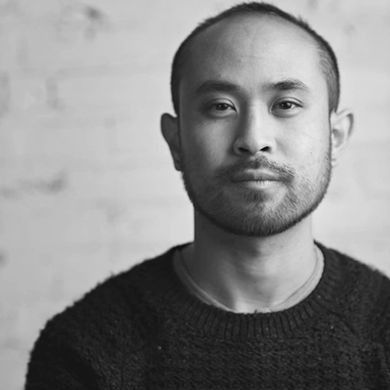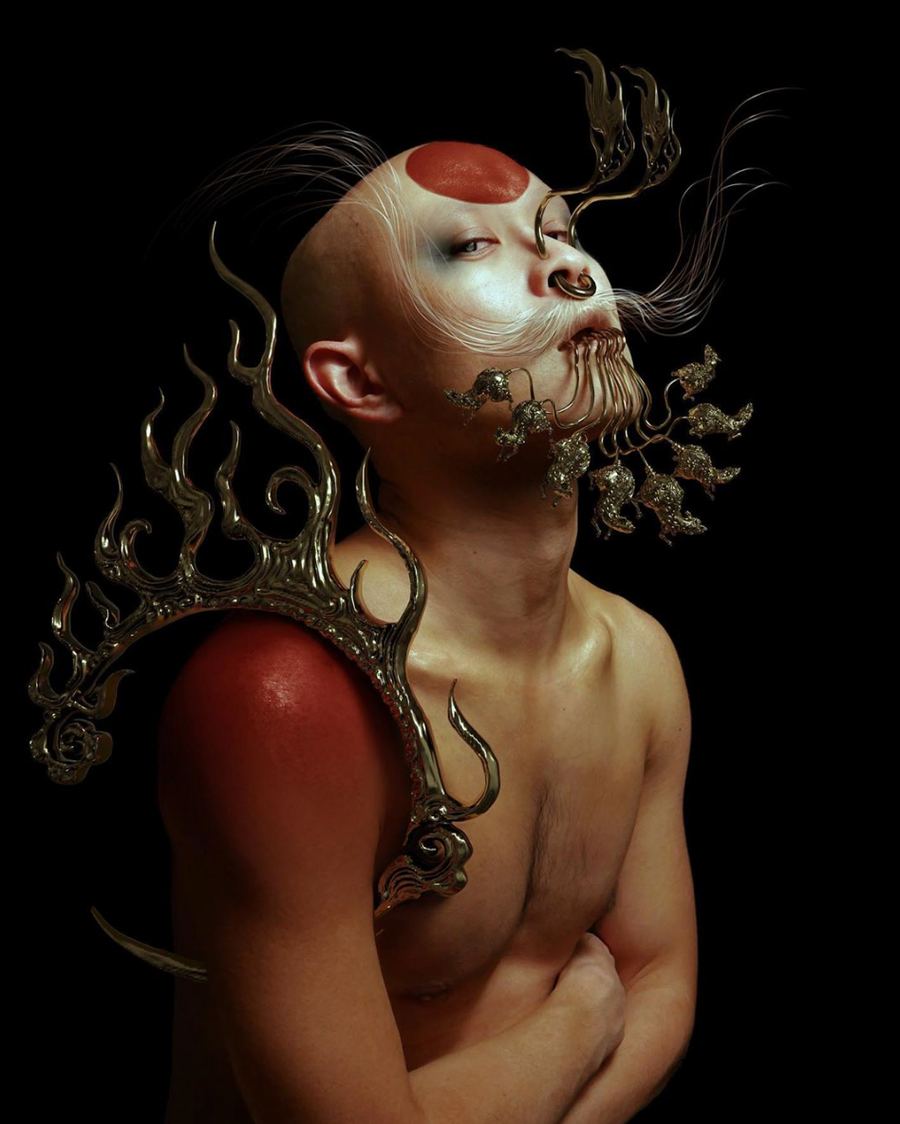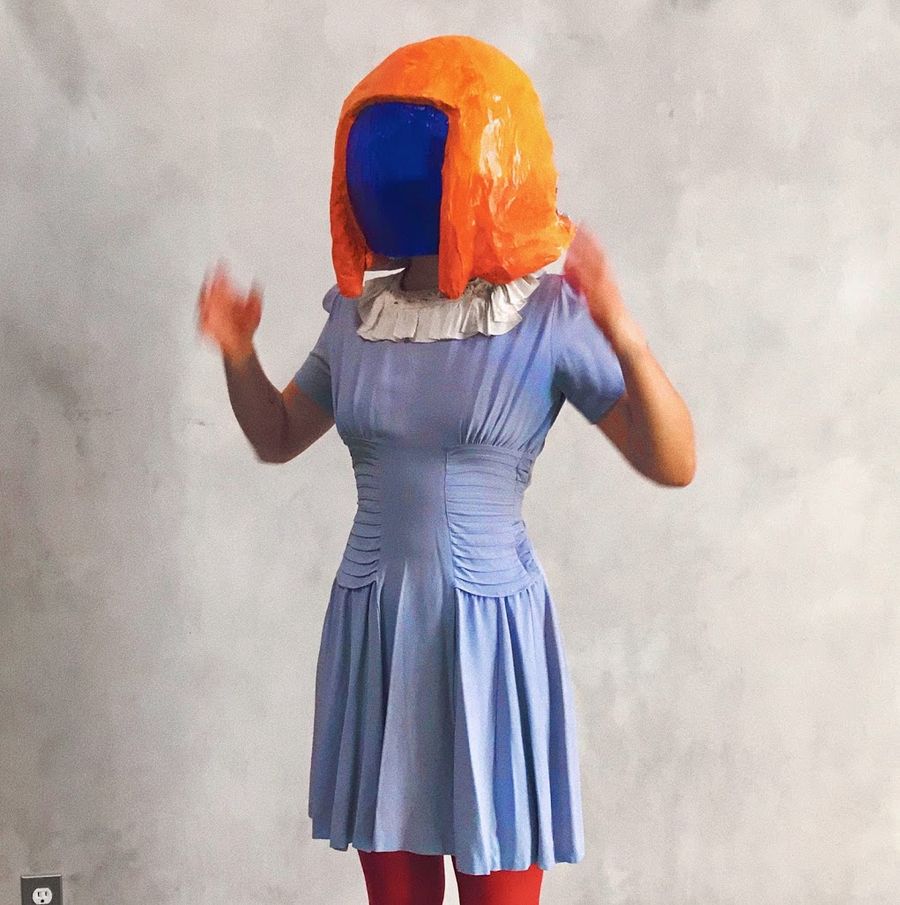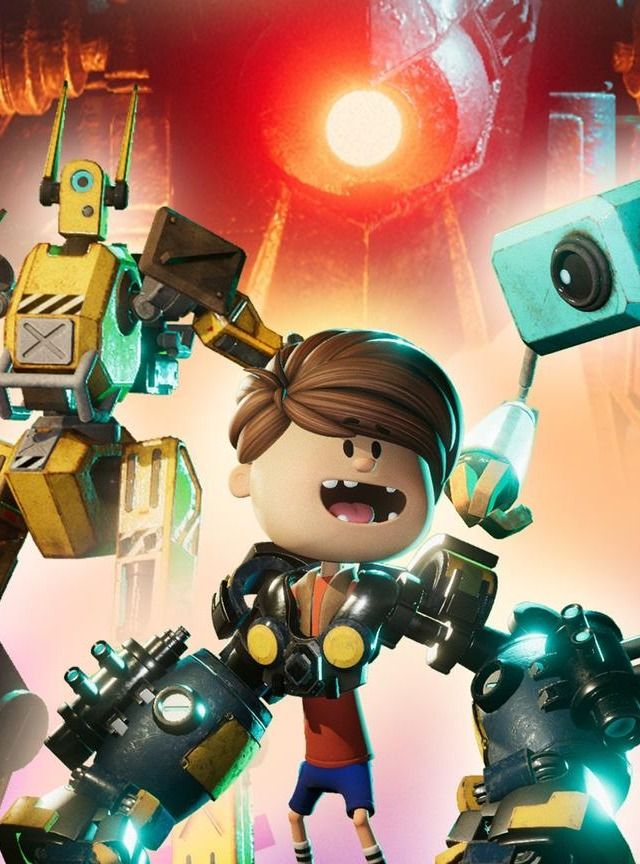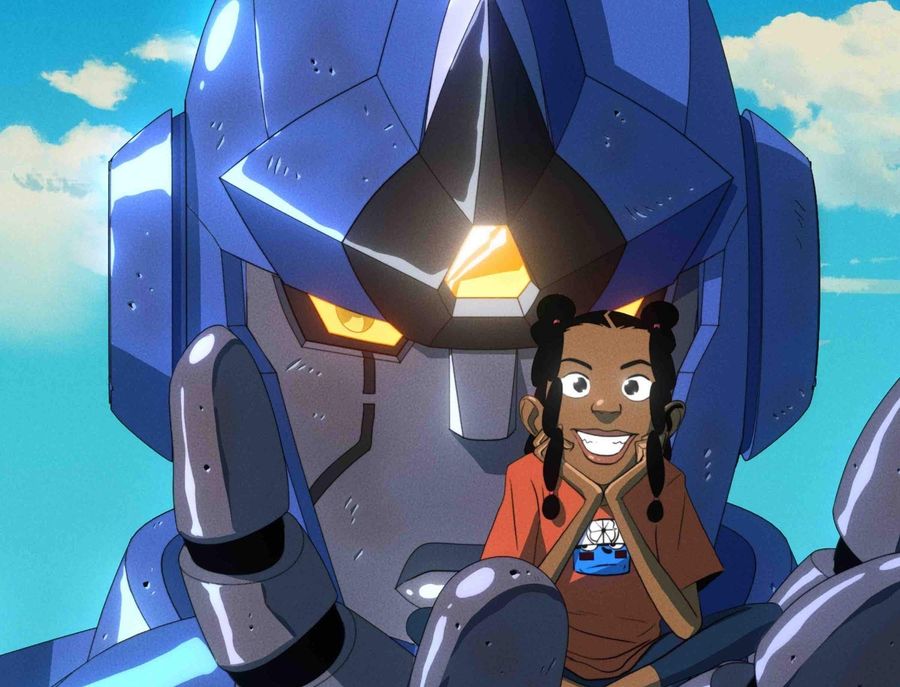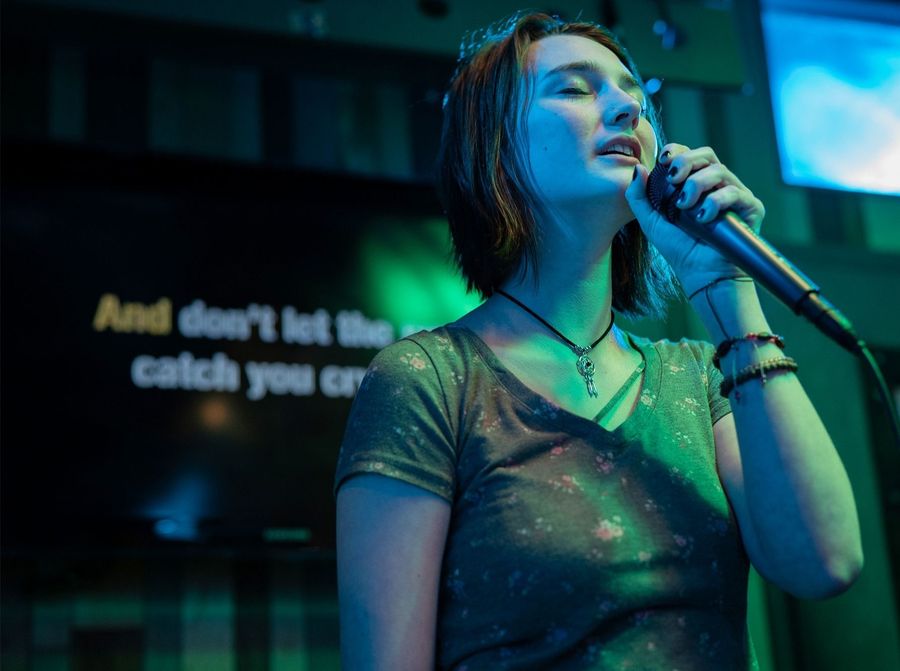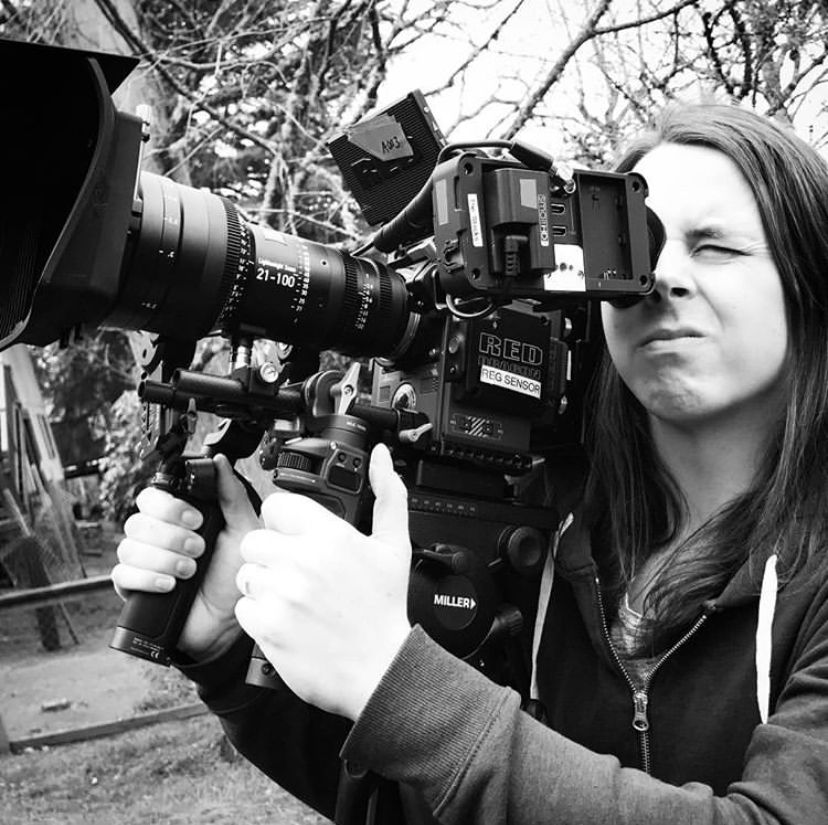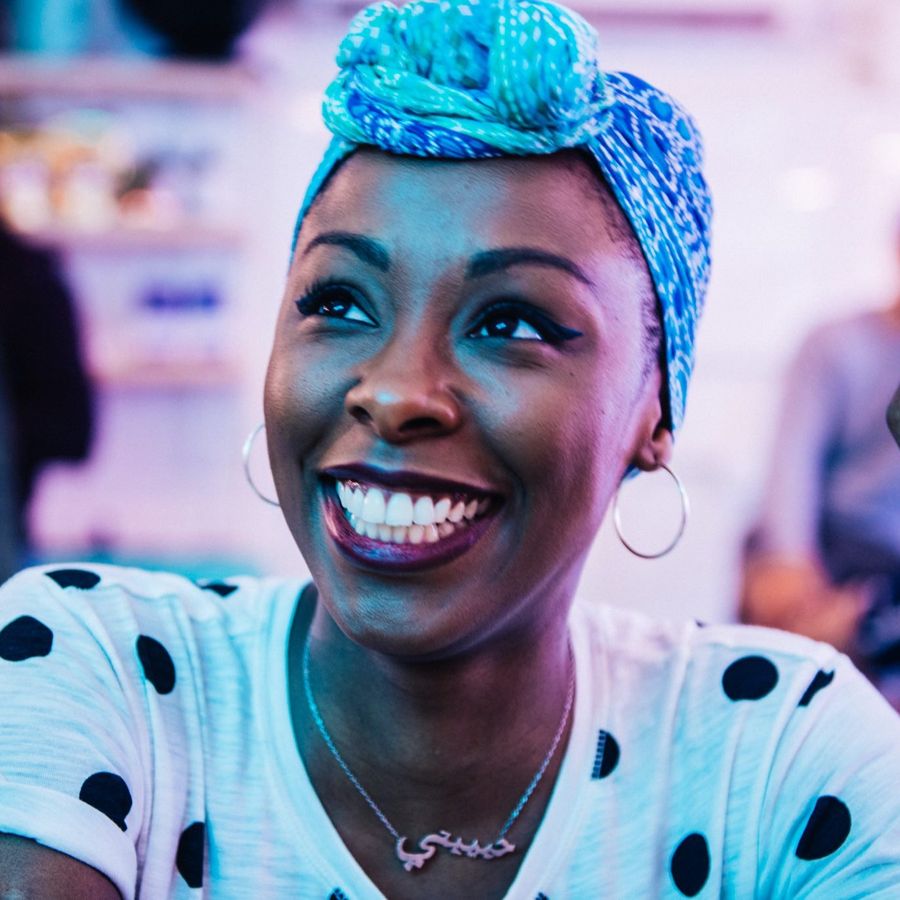When you grow up feeling like an outsider, living in your own imagination is tantamount to survival. See, when you create your own world, you get to live by your own rules, keep out exactly who and what can hurt you, and manifest the validation you seek. No artist has quite transformed his childhood into a considerable career quite like Andrew Thomas Huang. The son of Chinese immigrants, Andrew grew up fascinated by looking at the world through a lens of fantasy—whether that was the alternate universe of Star Wars or the surrealism of The Muppets. He then channeled his fascinations into art of all kinds—from painting to digital video.
“I started doing computer work because largely I didn’t feel seen as an individual,” Andrew says. “I think that’s the reason why a lot of women and people of color turn to our digital tools, because it’s a way for us to control things without the bullshit of the socio-political power dynamics that we often encountered externally.”
A stroke of serendipity, his come-up in the art space coincided with the beginnings of YouTube, where his bizarre indie short “Doll Face” became one of the first viral hits of the platform. The short led to his work as a commercial director right out of college, but Andrew realized how he craved a medium that allowed him to be more innovative and free. So he did what few artists are keen to do: he scrapped his reel and started fresh. Andrew hustled to make his passion project—the surreal short film, Solipsist. That film alone propelled him into the world of music video directing, after it garnered the attention of an equally forward-thinking artist, Björk.
While serving as Björk Digital’s creative director, Andrew pushed the limits of art, intertwining video, fine art, puppetry, and animation into unforgettable immersive experiences. It’s a personal brand that eventually added Radiohead’s Thom Yorke and FKA Twigs to his roster of collaborators. In fact, he’s currently up for a Grammy for directing FKA Twigs’ “Cellophane.”
But now, at 35, the director’s realizing he’s lived so much of his life in someone else’s fantasy. It’s time to do the wildest thing he could ever imagine: explore his own reality.
Here, Andrew discusses his journey from abstract art to personal storytelling, and the lessons he has learned along the way.

How did you feel on set the first times that you were directing?
At first, I was overcompensating. I was so afraid that I would try so hard to act not afraid, and it backfired terribly. A lot of us do that when we don’t know what we’re doing. The conventional wisdom rings true: if you don’t know, ask. As a director, it is your job not to know everything. It is your job to rely on people who know better than you do at their speciality and empower them to do a better job than you could ever do. You need to be good at curating and leading people, being a good person, and being good to them so that they can do their job. As long as you have an internal vision of what you want. Get comfortable with the rhythm of being uncomfortable constantly.
How did you come to that realization?
A week after graduating, I got three phone calls: one from J.J. Abram’s office, one from Endeavor Agency, and one from Anonymous Content. I was scared out of my mind. I would just go to these meetings in these big glass corporate buildings with mostly with white men in suits and I just felt like I didn’t belong.
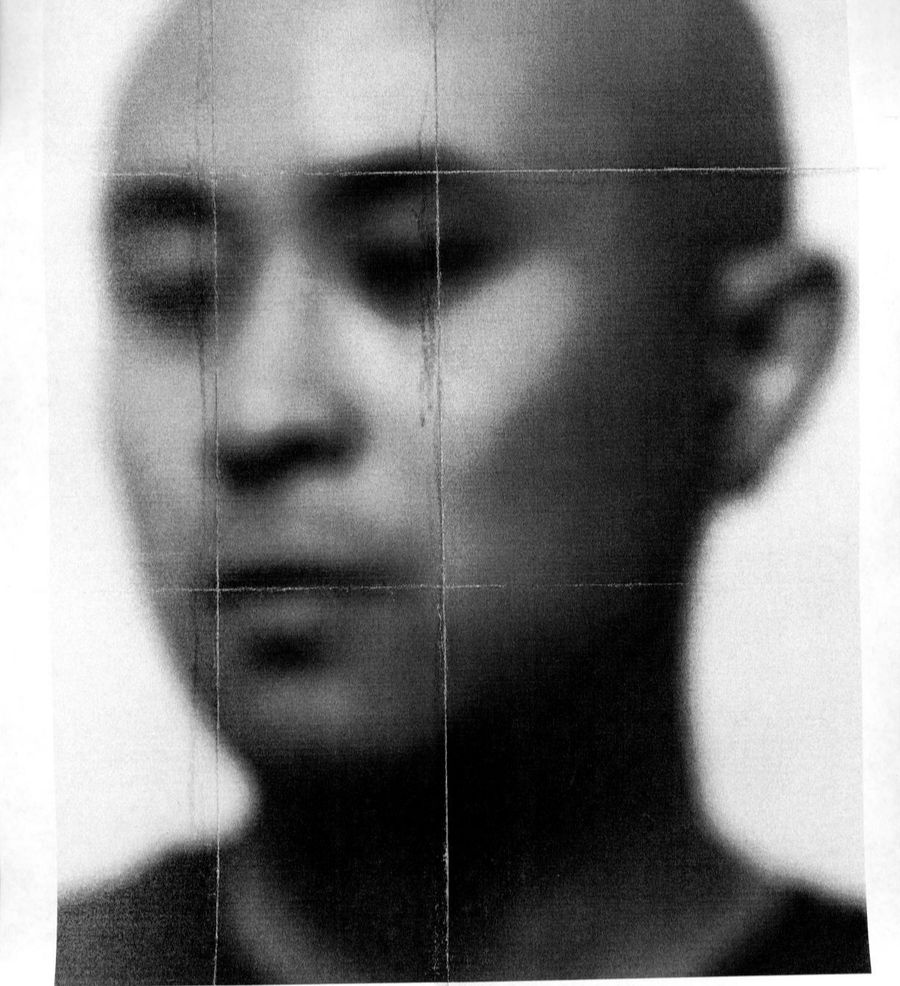
I signed with Endeavor, but I felt very intimidated by them. It was just agency culture. I was so scared of them that I took their advice because I thought that’s what I should do. I didn’t feel like anyone quite understood what I wanted to do, but to be fair on them, I didn’t know what I wanted to do. So I took the conventional Hollywood wisdom which is: do everything.
But after four years of doing that, I had a low point where I felt like I was obeying the wisdom of mostly white straight men who were all telling me what I should be doing. That’s when I made an art experimental film called Solipsist. I raised my own Kickstarter for it. Countering the popular, bleak David Fincher aesthetic at the time, my film was super craft driven, soft, gross, fleshy and unapologetically maximalistic. I made that for over a year and when I finished it, I realized that one, I was broke, exhausted, and depressed and two, all of my reps just didn’t care.
It was the moment of being unseen that I realized I needed to start a new community. I also had someone give me great advice which was, if this is what you want to do next and this is your best piece, you should scrap everything that came before this. So I took everything off the Internet and released Solipsist at Slamdance. When I put it online, it went viral again. Björk, Thom Yorke, Sigur Ros, and Joe Wright—all these people I grew up admiring—reached out that same year from that single film.
It was really validating to know that if you make something that's authentic to you, the types of people that inspired you will find you. Finding your voice isn’t always having a clear vision and then executing it flawlessly. Finding your voice is a matter of making those mistakes over and over. Solipsist was a result of four years of mistakes.
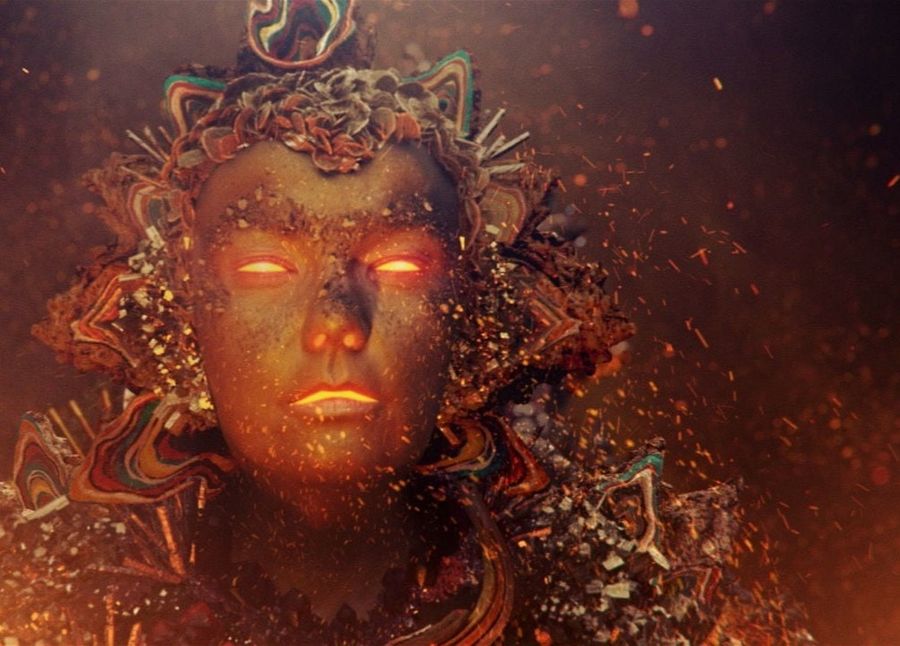
Once these people started to reach out to you, did that add to your ability to defend your voice?
That's hard to answer because I came out with Solipsist and then Björk came to me with "Mutual Core" and a concept that was in line with what I had just done. Then Thom Yorke came to me and I wanted to try something very different, but then I realized he wanted me to do what I did last time. So I did it. But I learned there’s a point at which when you do something and you gain success for it, people are going to want you to do it over and over again.
I realized that if I wanted to go in my own direction, I would have to be consistently entrepreneurial about it. Until I do that, no one would believe that I want to do something different. To be an artist in the age of capitalism, one must be an entrepreneur. It sucks but the reality is that no one will believe it until they see it. In order to have your voice, you must always be challenging yourself to undo what you did last time.
When Björk reached out to you for the first time, what was that like?
I wept at the Pavilions parking lot in Hollywood. All of her albums growing up were my heartbreak albums. In our careers, we zig zag and have low points. Then when you have a moment of success, you’re like, okay, I couldn’t have gotten here had I not done that. It was also extremely intimidating because of her legacy of directors she had worked with. I threw everything I had at her because I felt such immense pressure to live up to her name.
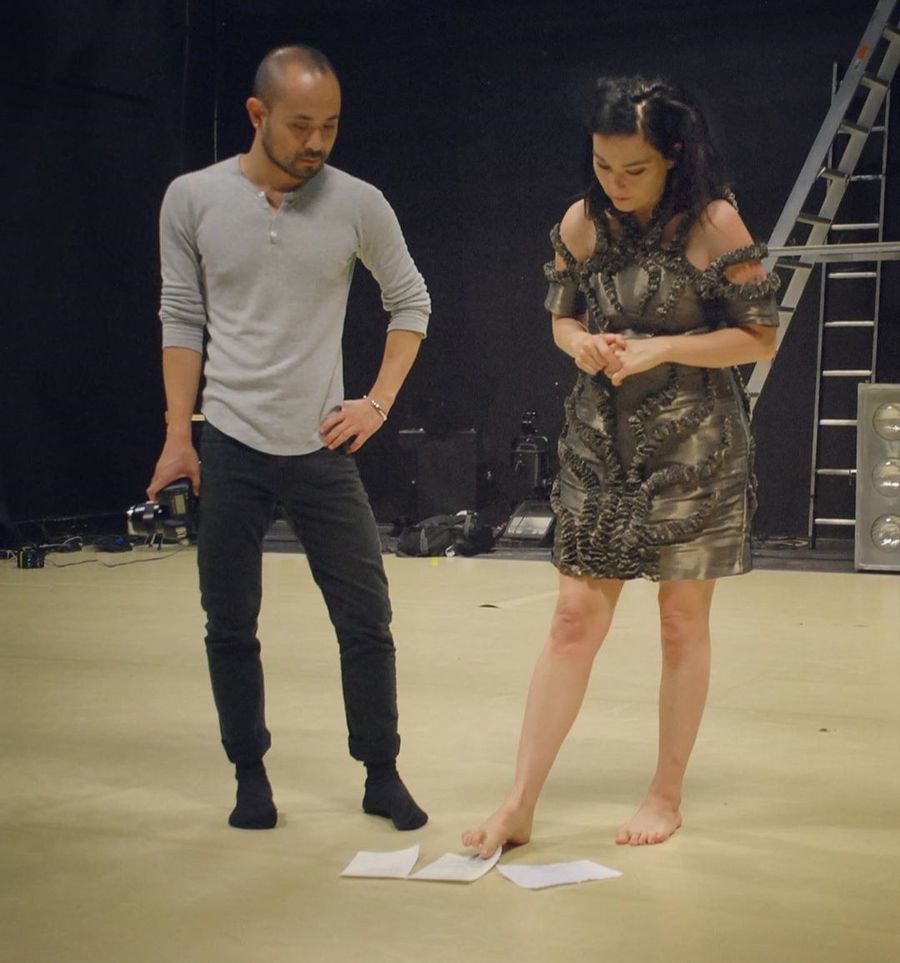


Beyond just Björk, you've worked with these artists that are known for their vision. But, as a director, you are also known for your own. So how are you balancing the two of maintaining your vision while supporting theirs?
I'm just picky and try to work with people who I know are going to offer mutual respect and freedom. But maybe that's because I'm choosing people who also desire that themselves.
Like FKA Twigs. She reached out, she's a fucking good director, but she's also fucking good at everything else. We spoke the same language on multiple levels. As an animator or someone who does life drawing, I’m always thinking about body mechanics, and she's a dancer, so there was an understanding there.
How do you feel like you’ve changed both on set and in pre-production—to know your worth and be able to stand up for on set? Did you come to that point by the time you were directing FKA Twigs’ “Cellophane”?
Knowing your worth is a lifelong journey. A lot of the mistakes I made on my first Björk video were because I didn't know my worth. The truth is, making choices as a filmmaker is always a business choice because film is expensive. Anytime you make a choice, there's a risk of failure, and you can only take that risk if you have the self worth to potentially face that.
When I first did the Björk video, I still was in a bad habit of thinking I could do it all. That's actually a form of saying you're not worthy of the help. It’s also not helpful to anybody nor respectful to how capable everyone is.
Sometimes you don't have the money to get help, which I get. But that's the thing about a lot of straight white dudes, they have no problem asking. Many of us who are in positions where we feel less than don't even bother. That's why we end up fiddling away on computers thinking that we can stay shriveled in our little DIY boxes.
I started doing computer work because largely I didn’t feel seen as an individual. That’s the reason why a lot of women and people of color turn to our digital tools—it’s a way for us to control things without the bullshit of the socio-political power dynamics that we often encountered externally. In terms of scaling up as an artist, you can't do that forever.
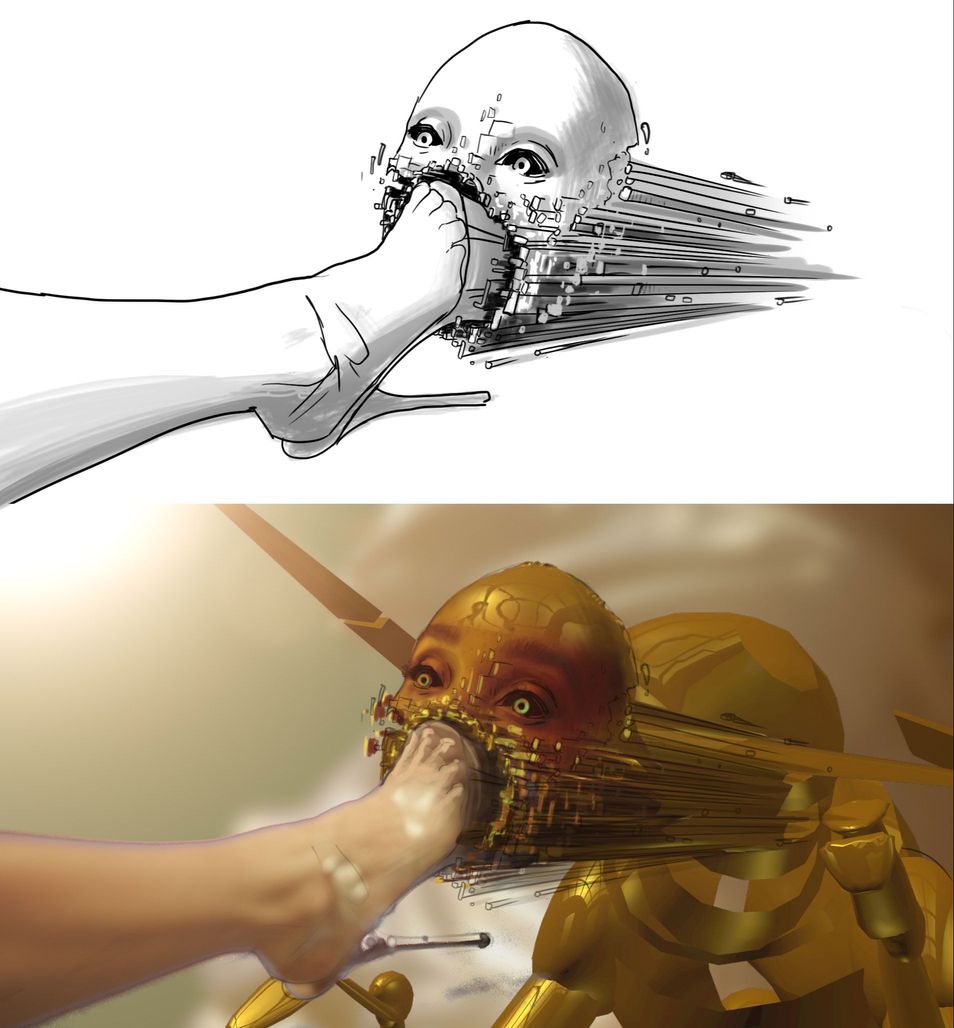
When you went onto the "Cellophane" video, were you still nervous going onto it?
I was more nervous because Twigs is such an amazing performer. In the past, as someone very DIY, I would always steal what I could from our shoot and then fix it all in post and use what I knew I could control. But when you work with a really good performer, you need to make sure all the conditions are there for them to do their best work ahead of time.
What I knew is that she’s doing this really intense pole routine, we’re flying across the world to the Ukraine to do it. She’s going to be tired, she’s going to be watched. She’s going to be in an outfit that is uncomfortable and it’s cold. We have to make sure that everything is there, perfect for her so that she can do her job and go home. So there was a lot of planning that needed to go right. And it didn’t, a lot of things went wrong.
I would say that I noticed on this Twigs shoot that I was having a harder time keeping it together. I'm older, I'm 35 now and I've been doing this long enough where I actually just realized I haven't been taking care of my body. At a certain point, your fuse is shorter when you're not taking care of yourself and sleeping well and all that. And so I did feel like this had to be the last one like this. She actually asked me to do another video right afterwards and I love her, we work so well together. But I knew that if I didn't spend the summer recuperating, I would go crazy. So I just had to say no.
I was way more insecure on my short film “Kiss of the Rabbit God.”

"I had a moment where I just had to go away and cry it out because I felt really fucked up that I can put pop stars in beautiful clothing and make them look like gods, but I couldn't do that for gay Asian people."
Why was that?
Well, in comparison, the Twigs video was a piece of cake. We had all the support we needed. But the short was a DIY return to filmmaking. On top of that, the story I had written was an extremely personal one, it was the first time I was shooting Asian actors, ever, and it was the first time I was shooting a gay storyline. I had a moment where I just had to go away and cry it out because I felt really fucked up that I can put pop stars in beautiful clothing and make them look like gods, but I couldn't do that for gay Asian people.
It felt fraudulent to do that. And I was like, why do I have such a terrible impostor syndrome doing that? It was way more emotionally costly, but also more emotionally rewarding to do my own work that was actually addressing more of my identity issues.
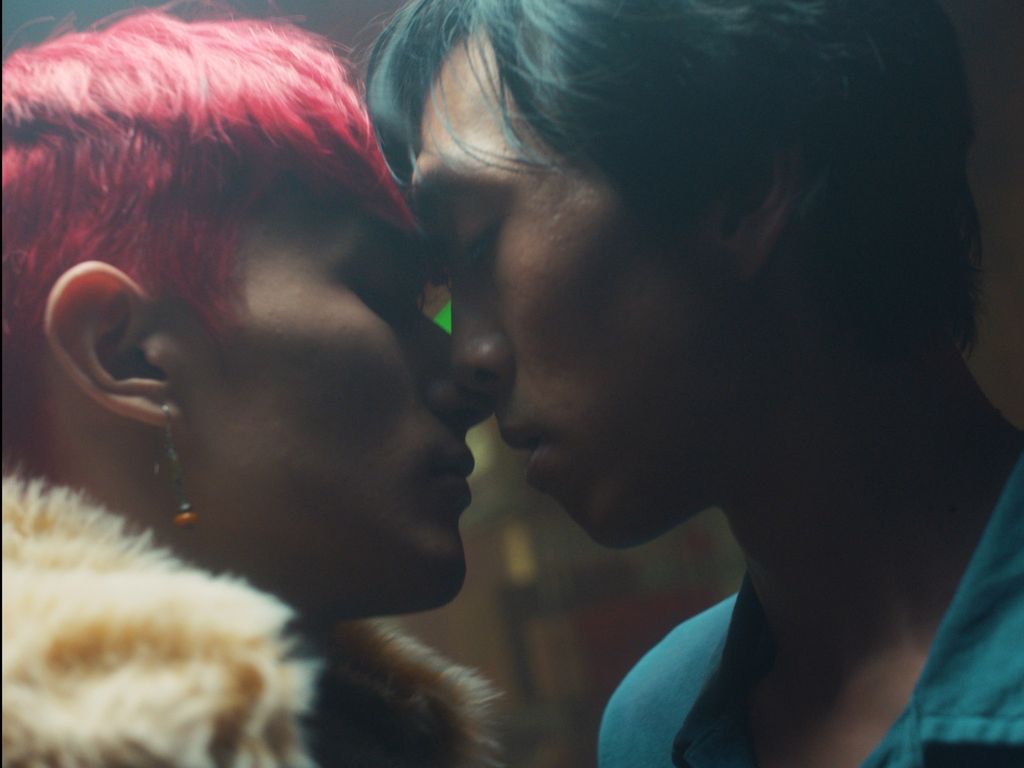
You’ve said that you were afraid to discuss your identity both sexually and as a Chinese American in your 20s. When did you start feeling like your identity was worthy to talk about in film?
It happened because Nowness had a series called “Defined” and they asked me and a few other directors to make short films based on “Define Sex.” Even though my work has fetishy things in it, sex has not been an easy subject for me. They asked me to do an Asian gay male story. At first, I felt tokenized. But then another part of me thought it was fair—I haven't tried that.
I came up with a story of a kid carving himself open, which was fitting. It took me years to see myself. I grew up through the eyes of my older sister, looking at pop culture through her eyes. She listened to Sonic Youth, Liz Phair, and Radiohead. She had cool taste and she was a cool kid. If I watched TV, it's because I was watching what she was watching, and never was there an Asian face, ever. Counterculture, in general, has been the most whitewashed thing.
We had no access. I grew up in a neighborhood that was half-white, half-Asian. A lot of the Asian kids would draw anime and stick together, and I didn't want to be like them. I wanted to serve my individuality. But that meant turning to counterculture in which there was no Asian face at all.
How did not seeing yourself reflected back in pop culture affect your art?
I remember when I cast Solipsist, I didn't have the bravery to diversify. I know I'm not alone in that. I know a lot of Asian-American artists who all whitewashed ourselves in order to advance and be seen as valid. It really wasn't until the turn of the 2010s that we started to see more people of color be given platforms, Twigs included.
But then I wasn't looking at China. The truth is, until the past five to seven years, we haven’t even seen some really provocative Chinese art. We had a lot of J-pop for decades and Korean K-pop has been doing well, but China has always been a closed country trying to find itself. Then to see the photography of Ren Hang and more amazing Shanghai artists come up—there was now something to be said there.
So when Nowness asked me, it felt fertile for me to explore. To be fair to myself, it really has been a fairly recent cultural shift, one that allows me to feel comfortable saying this.
How did it feel both when you were making the film but also when you were done with it? To know that’s now under your belt, you've told a story that reflects you entirely.
At first I felt insanely depressed and then I felt so happy that I got to do that. I feel like a different person after that film. I'm sure there are things I still wish I did differently, but I don't want to go back. What I gave to all the artists I’ve worked with, I want to start giving that more to myself.
Now you’re working on developing a feature, Tiger Girl. Did that come from making that short?
That was actually in motion before. I had the idea almost 10 years ago, but it's been crystallizing for the past three years. When it came to making Rabbit God, I knew that no one's going to believe that you can do something until you just do it. I felt like I needed to come out with something that’s a stepping stone so people would start taking me seriously in that regard. I don't think I could make Tiger Girl had I not made that “Rabbit God.”
Where are you at with Tiger Girl?
It's in late development. Angela Lee, who made Chloé Zhao's first movie, is an attached producer. We're still solidifying our team. I hope that we can start casting and financing early this year. I would like to shoot it in 2020, maybe by the end of the year or fall hopefully next year. I'm applying to Sundance*, this is the ??? number of times I've applied. I hope I get in. At the same time, I think I'm at the point where it's like if I don't, I'm perfectly happy.
*UPDATE: Since this interview, ATH was accepted into the 2020 Sundance Institute’s January Screenwriters Lab.
Do you have any closing advice you want to give?
Take writing, drawing, painting and photography classes, for the reason that your eye doesn't change but the technology will. Make something and sell the hell out of it. No matter how good or bad it is, just go out and see what you could get out of it. It's fine to be shameless because, frankly, most dudes are. It's how you sustain the business of your art. Toot your own horn, but also be extremely selective about the work you put out. Only showing your best work will create your sharpest portfolio.
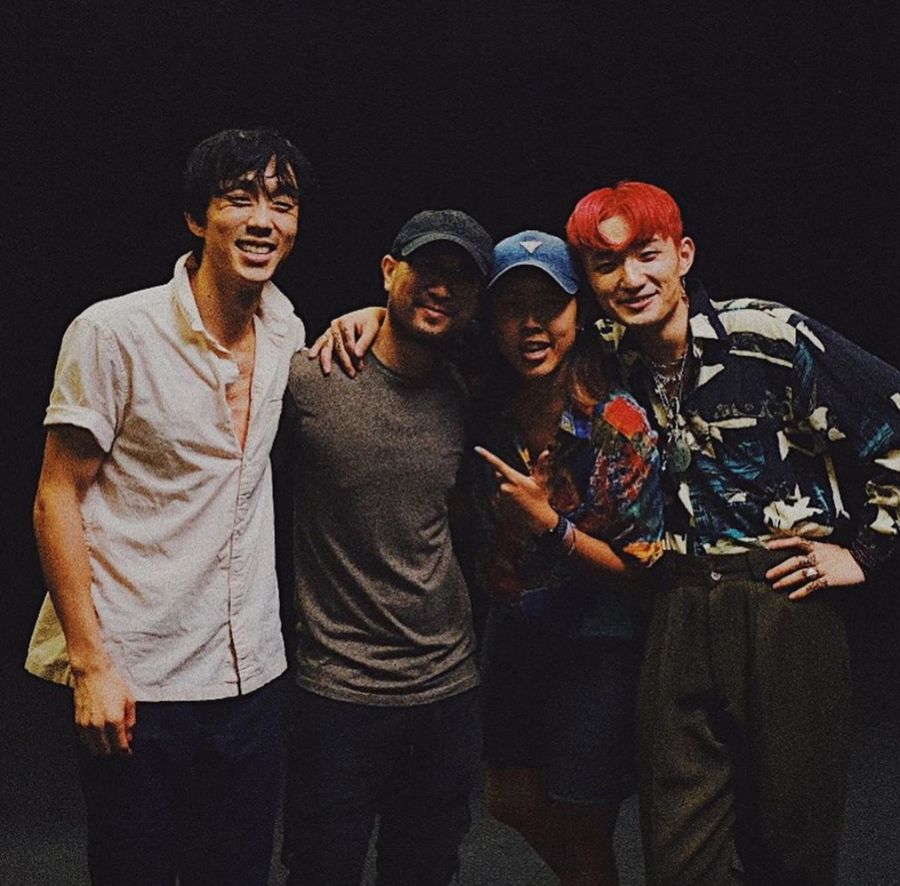
Andrew Thomas Huang
With a background in fine art, visual effects, puppetry and animation, Los Angeles-based filmmaker Andrew Thomas Huang explores alternative modes of storytelling to create lush, mythic worlds. His list of collaborators include Icelandic artist Bjork, among others including FKA Twigs, Radiohead's Thom Yorke and British director Joe Wright. Huang served as creative director for Bjork's VR exhibition Bjork Digital, creating multiple immersive experiences within the pioneering traveling installation. His films and videos have exhibited at The Museum of Modern Art, NYC; MoMA PS1; The Sydney Opera House, Sydney; The Barbican Centre, London; and the Museum of Contemporary Art, Los Angeles. With his strength in world-building, Huang carries on his visual aesthetic as he continues his foray into narrative feature film. Huang is a Cinereach Fellow, a recent fellow in Film Independent's Directors & Screenwriters Labs, and a recipient of the K Period Media Fellowship grant. His most recent narrative short "Kiss of the Rabbit God" premiered at Tribeca Film Festival 2019.
